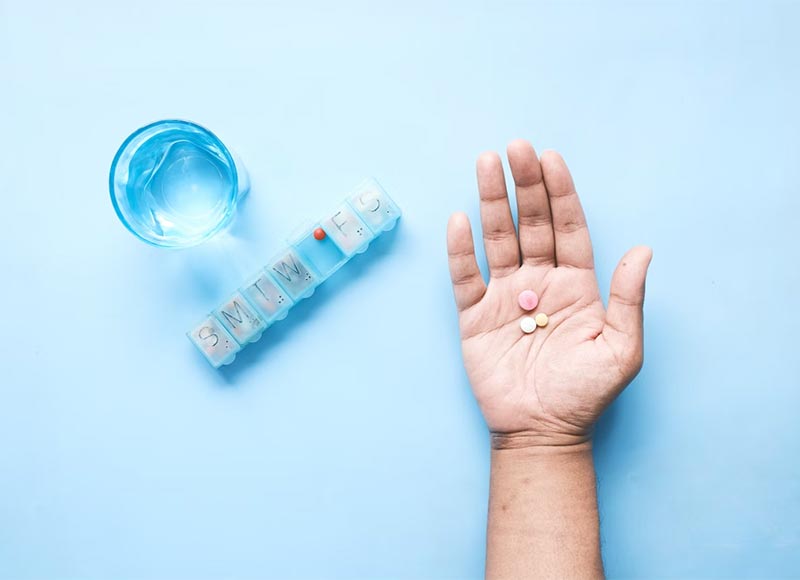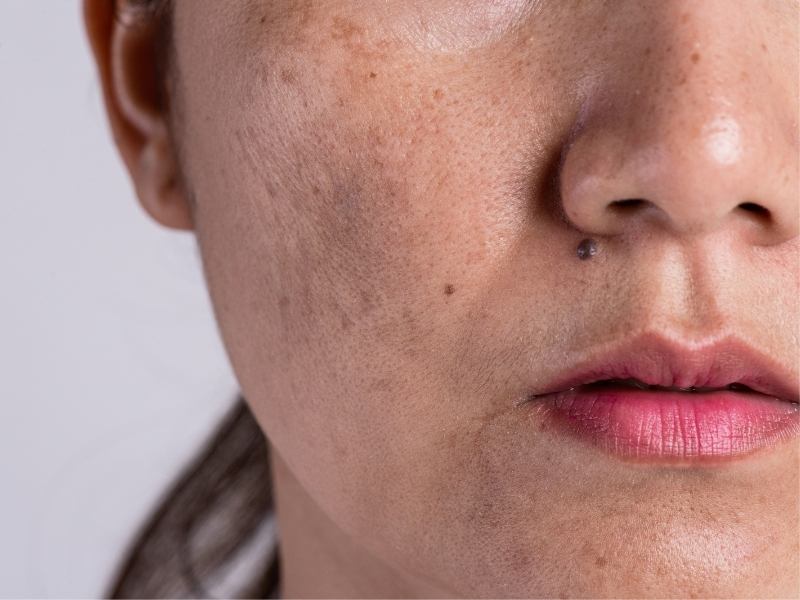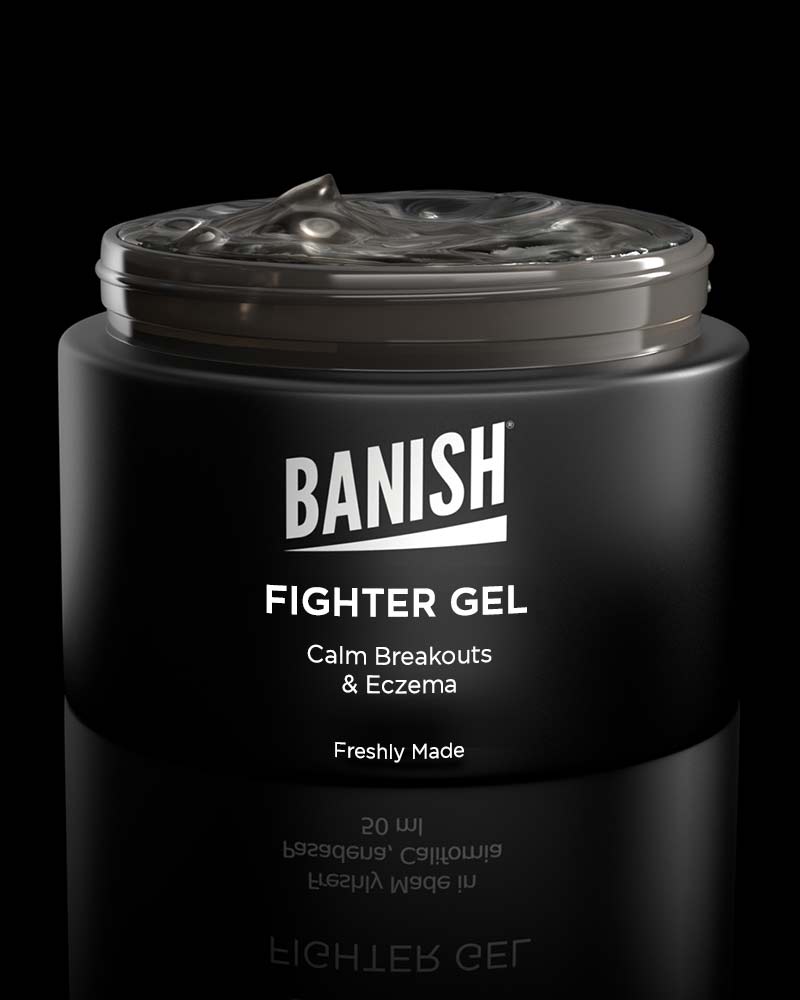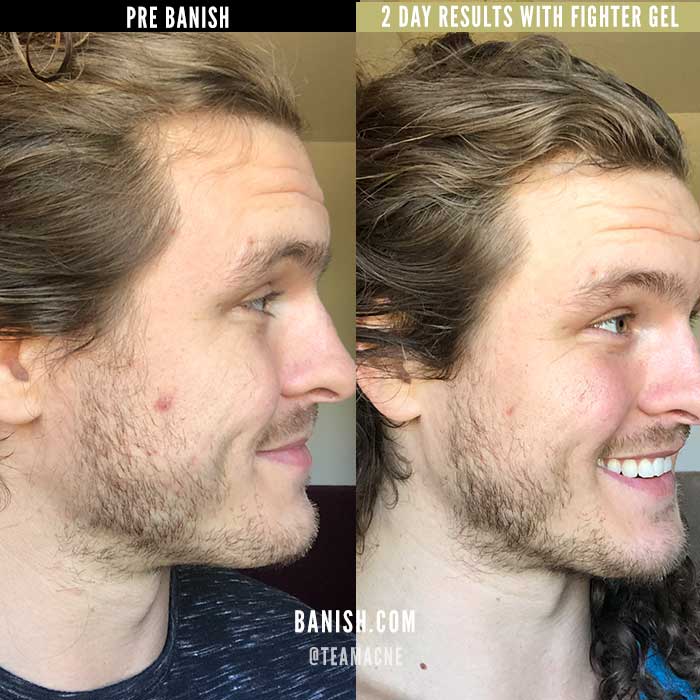Anyone who has ever had full on acne can tell you that sometimes all the standard topical treatments in the world aren't making much progress for their acne.
When topical products aren't really helping acne, you may decide to look into oral medications with your doctor to combat more stubborn and severe cases of acne.
Some common oral acne medications would be isotretinoin or Accutane, spironolactone, and even antibiotics such as doxycycline.
Doxycycline is one of the most commonly prescribed antibiotics for acne. Here's what you should know about it before taking doxycycline for acne.
What is Doxycycline?
Doxycycline is a type of antibiotic if the tetracyclines category and has been prescribed by doctors and dermatologists for many years.
It's used to treat moderate to severe inflammatory acne, rosacea, and cellulitis. It's also used for treating acne across large areas like body acne.
It works by reducing by reducing levels of acne causing bacteria. Having lower levels of acne causing bacteria can in turn lower skin inflammation due to the lower bacteria amount.
It can also reduce inflammation because it affects the immune system. It blocks the immune system's messaging to create more inflammatory blood cells which may help reduce redness from inflammatory acne.
How It's Used
Your prescription from your doctor will say all the details on how the medication is used personally for you.
It is recommended to be taken with a full glass of water, and at least half an hour before bed to reduce side effects to the stomach.
Risks
Doxycycline and other antibiotics have the potential to damage our gut health and it may sound counterintuitive, but also compromise skin health too.
Common Side Effects:
- Heartburn
- Indigestion
- Stomach and Esophagus Pain
- Ulcers
- Diarrhea
- Sunlight sensitivity
- Nausea & Vomitting
Antibiotics should never be taken more than 3 or 4 months because of its side effects. Ideally, try to do the shortest length possible which would be around 6 weeks to be able to see an difference for acne.
Also, if you finish your doxycycline antibiotic course, you shouldn't restart a new antibiotic prescription for acne as it can increase bacterial resistance and worsen side effects.
The reason why antibiotics can cause so many digestive and stomach problems is because while it reduces inflammation in skin, it can cause inflammation in the esophagus and stomach.
While it reduces, acne causing bacteria, doxycycline also reduces the beneficial gut bacteria that we naturally have too which can upset the digestive system.
Doxycycline can also cause skin to be more sensitive to the sun and make it a lot easier for skin to be sun burned or sun damaged.
Out of all the different types of antibiotics that may be prescribed to treat acne, doxycycline is a bit more safer with less serious side effects compared to others, but in our opinion it's better to try other methods before resorting to antibiotics.
Alternatives
There are other topical ingredients to look for to help reduce acne causing bacteria that aren't as intense as doxycycline such as:
- Honey
- Propolis
- Oregano or Thyme
- Sulfur
- Aloe Vera
- Willow Bark Extract
Try to find a skincare formula that has these ingredients because undiluted forms could cause irritation and worsen acne.
And for the inflammatory cause of acne, it will be very personal but find ways to generally reduce inflammation in your body while trying to figure out your root cause.
Sometimes, it takes a long while to find the root cause of your inflammation and acne but the steps below can help in generally lowering inflammation both in your body and topically.
How To Reduce Inflammation
I know it's common sense but try to get enough sleep, and a little exercise throughout the week.
Reduce sugar intake, a Low glycemic index diet helps.
Avoid over exfoliating the skin or over using too many acne treatments. If your skin feels itchy or any stinging, you may have a damaged skin barrier.
Work on keeping the skin barrier healthy, sometimes you may consider just taking a break and doing a simple routine with a cleanser, antioxidant serum, and moisturizer for a week or two and see how your skin looks and feels.
Recommended Products
Vitamin C Creme to heal skin and moisturize
Fighter Gel which contains aloe and MSM a form of sulfur to treat current acne breakouts.
Personal Experience With Doxycycline
A reader wrote to us their personal experience with doxycycline
"I was on doxycyclcine for over 6 months already but it had lost effectiveness.
I was advised to continue taking it for a few more months so I took doxycycline for about a full year.
However, after a year I started getting some bad reactions like heartburn and stomach aches daily. I started forming ulcers in my stomach and I was advised to discontinue taking doxycycline right away. I also had a coppery taste in my mouth from taking the medication.
I rate doxycycline a 3/10 because it didn't really give me results long term and it began having negative impacts on my health"
All in all, doxycycline can help some people with inflammatory severe acne, but weigh the possible health side effects to decide if it is worth trying for you. Again, there are other alternatives to try out which is recommended before trying doxycycline for acne.




























Leave a comment
All comments are moderated before being published.
This site is protected by hCaptcha and the hCaptcha Privacy Policy and Terms of Service apply.